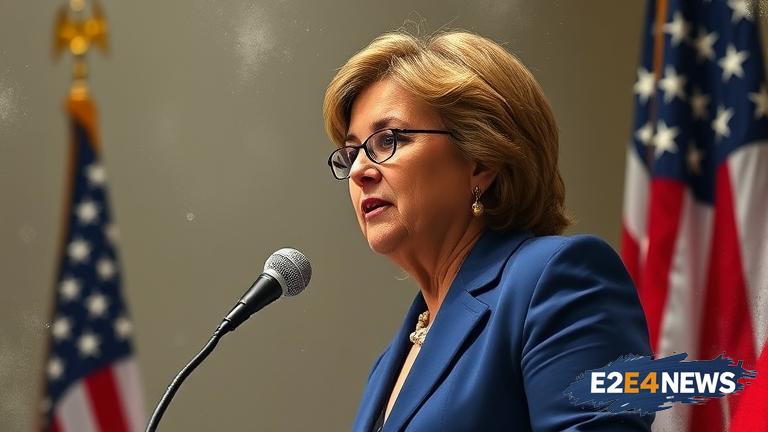The US immigration debate has been reignited by Congresswoman Marjorie Taylor Greene’s recent call to end Indian H-1B visas. The H-1B visa program allows US companies to temporarily employ foreign workers in specialty occupations, with India being one of the largest beneficiaries of the program. Greene’s statement has sparked controversy and outrage among the Indian-American community and immigration advocates. The H-1B visa program has been a topic of debate in the US for several years, with some arguing that it takes jobs away from American workers and others claiming that it helps to fill labor gaps in the US economy. The program has been particularly popular among Indian tech workers, who make up a significant proportion of H-1B visa holders. Greene’s call to end the program has been seen as a move to appease her conservative base, but it has also been criticized as a misguided attempt to address the complex issues surrounding US immigration. The US immigration system has been under scrutiny in recent years, with many calling for comprehensive reform to address the country’s labor needs and provide a pathway to citizenship for undocumented immigrants. The H-1B visa program is just one part of the larger immigration debate, which also includes issues such as border security, asylum seekers, and the Deferred Action for Childhood Arrivals (DACA) program. The US has a long history of immigration, with people from all over the world coming to the country in search of better opportunities. However, the immigration debate has become increasingly polarized in recent years, with some arguing that the US should prioritize the needs of its own citizens over those of foreign workers. The H-1B visa program has been the subject of several controversies over the years, including allegations of visa abuse and exploitation of foreign workers. Despite these controversies, the program remains popular among US companies, which argue that it helps them to fill labor gaps and stay competitive in the global economy. The Indian government has also been a strong supporter of the H-1B visa program, which it sees as an important way for Indian workers to gain experience and skills in the US. The US and India have a long-standing relationship, with the two countries cooperating on a range of issues, including trade, defense, and education. However, the H-1B visa program has been a source of tension between the two countries, with some in the US arguing that India is taking advantage of the program to send large numbers of workers to the US. The controversy surrounding the H-1B visa program is just one part of the larger debate over US immigration, which is likely to continue in the coming years. As the US economy continues to evolve, it is likely that the demand for foreign workers will remain high, and the H-1B visa program will continue to be an important part of the US immigration system. However, the program will need to be reformed to address the concerns of both US workers and foreign workers, and to ensure that it is fair and equitable for all. The US Congress will need to take a comprehensive approach to immigration reform, one that addresses the complex issues surrounding the H-1B visa program and the broader US immigration system. This will require a bipartisan effort, as well as input from a range of stakeholders, including US companies, foreign governments, and immigration advocates. The future of the H-1B visa program remains uncertain, but it is clear that it will continue to be an important part of the US immigration debate. As the US continues to grapple with the complex issues surrounding immigration, it is likely that the H-1B visa program will remain a topic of controversy and debate. The program has been the subject of several reforms over the years, but it remains a popular target for politicians looking to make a point about immigration. Despite the controversy surrounding the program, it is clear that the H-1B visa program has played an important role in the US economy, and will continue to do so in the future. The program has helped to fill labor gaps in the US economy, and has provided opportunities for foreign workers to gain experience and skills in the US. However, the program will need to be reformed to address the concerns of both US workers and foreign workers, and to ensure that it is fair and equitable for all. The US immigration system is complex and multifaceted, and the H-1B visa program is just one part of the larger debate over US immigration. As the US continues to evolve and grow, it is likely that the demand for foreign workers will remain high, and the H-1B visa program will continue to play an important role in the US immigration system.





